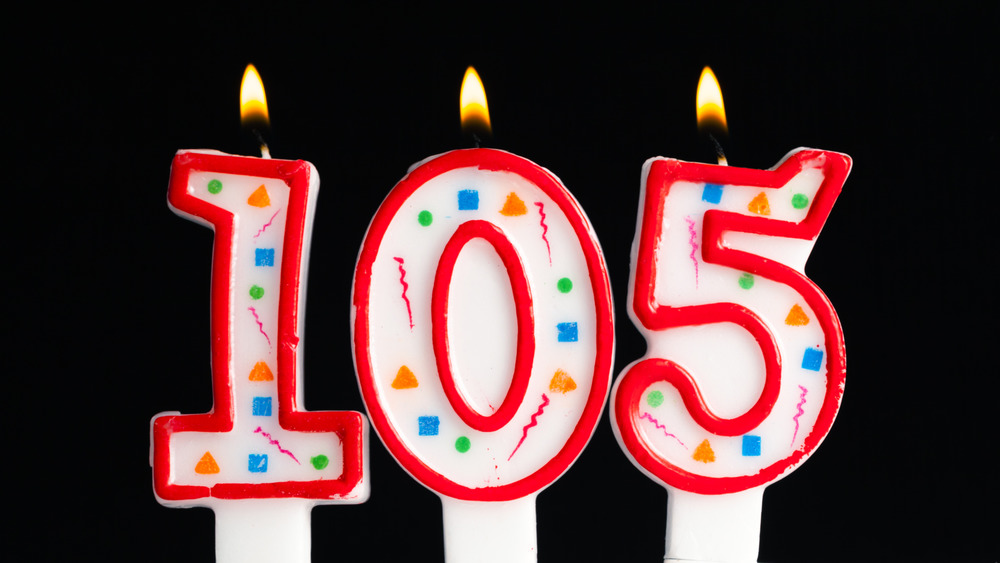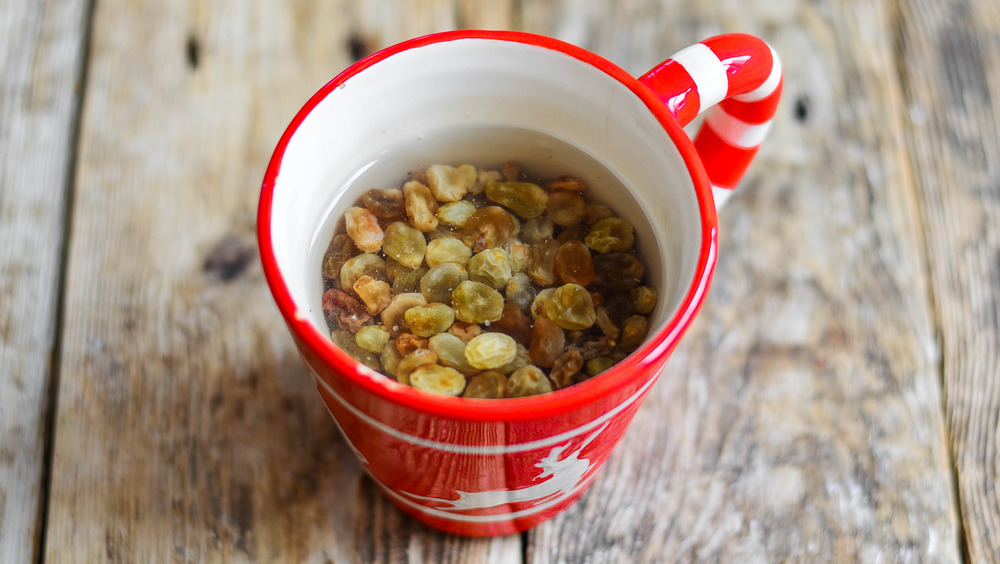The Gin-Soaked Snack This 105-Year-Old COVID Survivor Credits For Her Longevity
Most of us know that if we want to live a long, healthy life we need to put in the work when it comes to our own health with habits like exercise, maintaining a nutritious diet, and getting enough sleep (via Healthline). However, it's always fun when a person who has lived an impressively long life shares what they believe to be the secret to their success. Take Lucia DeClerck, dubbed by her family "The 105-year-old badass who kicked Covid" (via The New York Times).
DeClerck was born in Hawaii in 1916 and has lived through more than most people ever will, and while she maintains many positive habits (including staying active in her faith and eating "no junk food") she credits her longevity with one habit in particular: eating nine gin-soaked golden raisins each morning, for most of her life.
If you're skeptical, you're not alone. DeClerck's family had their own reservations about her many unique rituals, like brushing her teeth with baking soda. However, even that habit also has seemed to work, as DeClerck managed to avoid any cavities for the first 99 years of her life! So, if you're willing to give it a try, here's how to make your own gin-soaked raisins.
What you need to know about gin-soaked raisins
The ingredients are as simple as they sound: you'll need a jar, gin, and golden raisins (not regular ones!). Fill the jar with golden raisins, top it up with gin, then let them sit and soak for nine days, according to DeClerck. After that, they're ready to be eaten. She has nine each morning and has for most of her 105-year-long life.
Gin-soaked raisins might sound familiar to you, and that's because it's actually an old folk remedy for arthritis and joint pain that became popular in the 1990s (via Verywell Health). Unfortunately, there have been no double-blind studies to test its actual effectiveness, so while there are theories as to why it might work, we don't know for sure. It's just as likely that DeClerck's healthy diet and strong social ties are equally, if not more responsible for her long, healthy life (via Berkeley Wellness).

